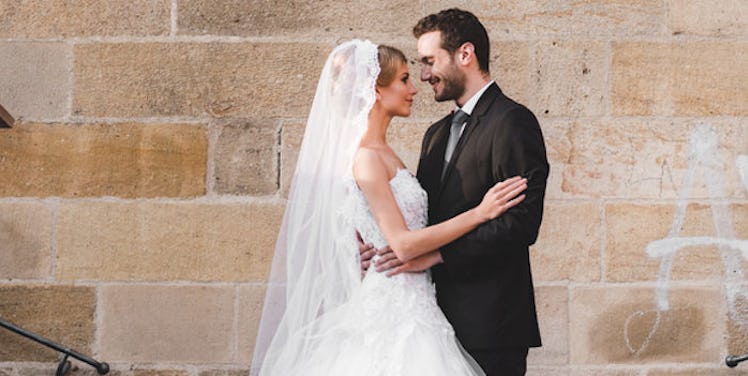If I say the phrase "bachelor party," what's the first thing you think of?
I bet I can guess: You've just conjured up an image of dudes crowded together in a dimly-lit strip club with black leather couches, neon lights, booze, cash and, of course, scantily-clad women dancing on poles.
It's no surprise this is the first thing that comes to mind, as society tells us this is how men should celebrate their soon-to-be unions.
Without even mentioning extreme examples, like "The Hangover," there are countless scenes in movies and television shows that depict bachelor parties as sexually-driven events of debauchery.
But, it's not just the guys. Ladies, let's talk about stereotypes of the bachelorette party.
A quick Google search for "bachelorette party favors" yields penis-shaped lollipops and pasta and other "naughty" trinkets. Guys aren't the only ones looking for strip clubs; girls are likely to end up there, too, making it rain with dollar bills.
In every case, regardless of gender, there's a huge grey area between what might be considered "harmless fun" and what could be construed as extremely hurtful to a partner.
Can we just tap the pause button for a moment here?
Let's revisit, for a moment, the reason behind bachelor and bachelorette parties. Why does one have one in the first place? Oh, yes, of course: This person is getting married.
Call me conservative, but isn't it a little strange we choose to celebrate an impending marriage by ogling half-naked members of the opposite sex? What, if anything, about this behavior demonstrates respect and excitement about the commitment you are about to make?
Believe it or not, bachelor parties have been around for much longer than you may think, dating back as far as ancient Sparta. History tells us soldiers held a dinner in their friend's honor, celebrating the groom's last night as a single man.
The term "bachelor" wasn't used to describe a single man until the 17th century; interestingly enough, before then, the word signified a man who did not own property.
It's important to note the idea of marriage was very different in the early days of bachelor parties and bachelorhood.
Many marriages were arranged, or viewed as business deals, rather than the romantic notion of molding your life with another person's. In that case, the idea of celebrating one's last night as a single person made sense.
Today, however, the process of getting engaged and married is a lot different. Some couples date for a few years before getting engaged; others date closer to an entire decade.
Some people choose to have an engagement period of a year or more, or live together before tying the knot.
In all of those cases, people who are part of long-term relationships aren't really bachelors or bachelorettes.
You're not a bachelor if you're in a committed relationship, and you're not a bachelorette if you're engaged. Therefore, why is it okay to behave as though you are flying solo?
To take this one step further, many people justify this questionable behavior by quipping, "Last night of freedom!" The idea of going completely crazy while you "still can" begs the question, what do you anticipate your marriage to look like?
If you're equating marriage with the death of freedom or independence, you should probably re-evaluate whether you're ready to be married at all.
The notion of sharing the rest of your life with another human being does not mean you've lost all ability to be your own person.
The best relationships are the ones made up of two unique individuals, each with his or her own sense of wholeness.
Ultimately, it's important to be respectful of your partner, as well as the other people involved with the planning of such events.
Respect your fiancé's boundaries and respect the boundaries that exist between the members of your bridal party and their significant others.
Most importantly, as with any other aspect of the wedding process, don't lose sight of the true reason behind your celebration.
